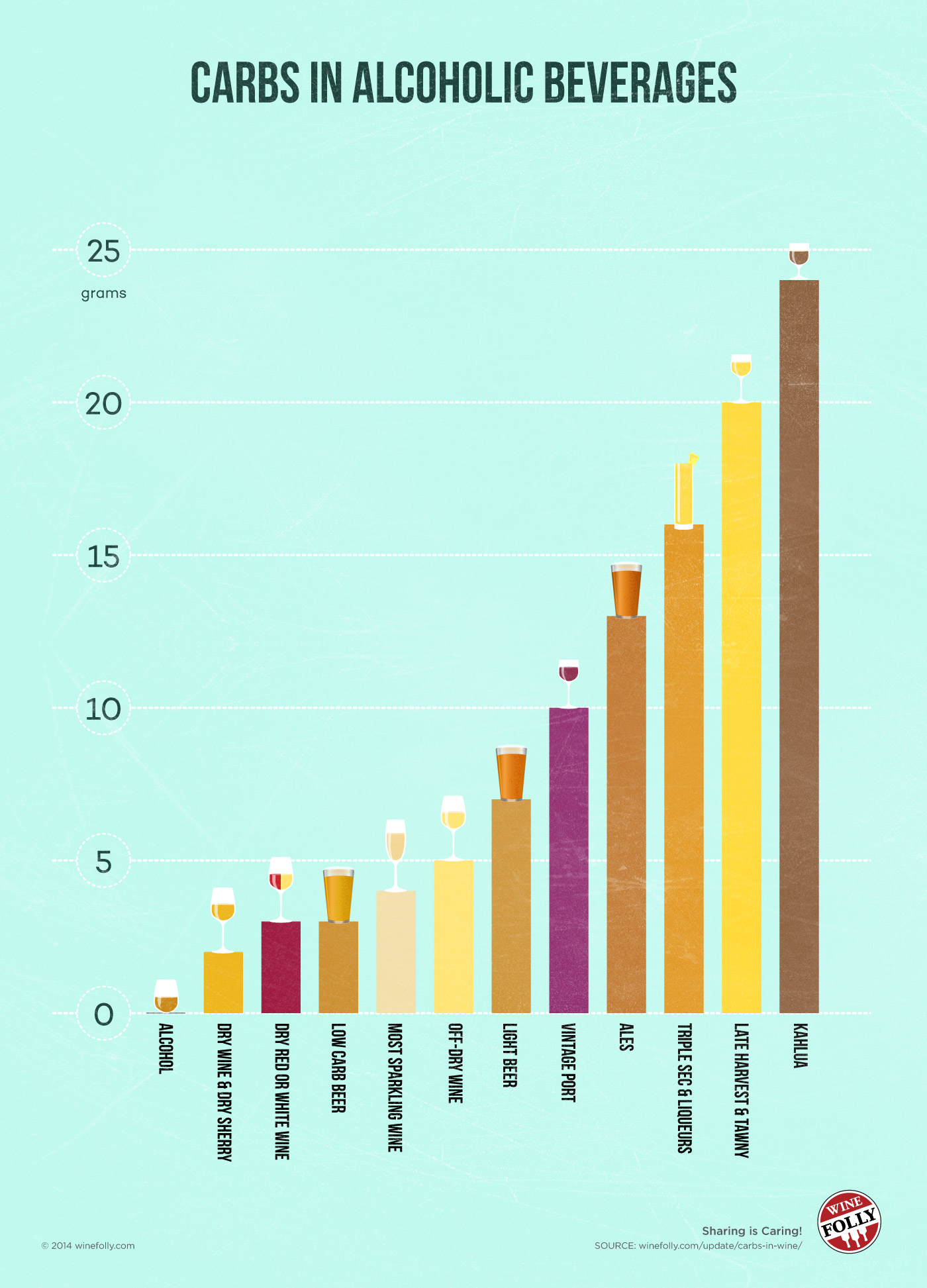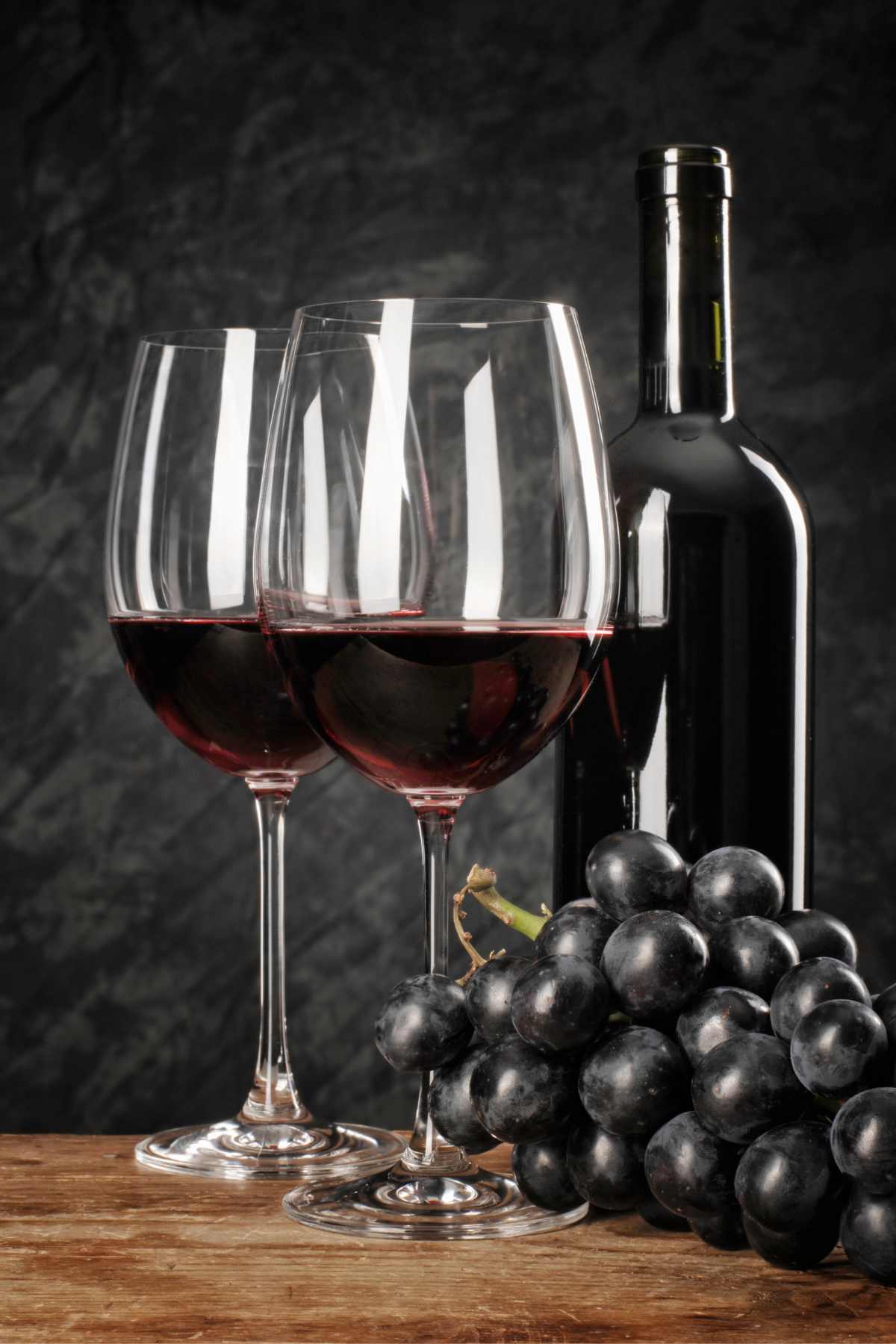Ever wondered if your evening glass of wine is secretly loaded with carbs? You're not alone! Many wine enthusiasts find themselves pondering this question as health trends focus more on carbs and sugar. In this article, we’ll dive deep into whether wine contains carbs and what it means for your diet.
Let’s face it, wine has become a staple in many people’s lives. Whether you’re sipping on a chilled glass of Sauvignon Blanc after a long day or enjoying a bold Cabernet Sauvignon with dinner, wine plays a big role in our social and personal lives. But with all the buzz around low-carb diets, you might be wondering—does wine fall into the carb category?
Don’t worry, we’ve got you covered. In this article, we’ll explore the carb content of wine, break down the science behind it, and help you make informed decisions about your favorite drink. Cheers to knowledge!
- Aubrey Wyatt A Life Remembered Through The Obituary Website
- Love In Focus The David And Rebecca Muir Wedding
Table of Contents
- What Are Carbs Anyway?
- Is Wine Actually Carbs?
- Types of Wine and Their Carb Content
- How Wine Is Made: The Carb Factor
- Low-Carb Wine Options for Health-Conscious Drinkers
- The Health Impact of Wine Carbs
- Common Myths About Wine and Carbs
- Tips for Drinking Wine on a Low-Carb Diet
- How Does Wine Compare to Other Alcoholic Drinks?
- Wrapping It Up: Is Wine Worth It?
What Are Carbs Anyway?
Before we jump into the wine specifics, let’s break down what carbs actually are. Carbohydrates, or carbs for short, are one of the three macronutrients our bodies need to function. They’re found in foods like bread, pasta, fruits, and even some drinks. Carbs are broken down into glucose, which fuels our body and brain.
But here’s the thing—not all carbs are created equal. There are simple carbs, like those found in sugar and refined grains, and complex carbs, like those in whole grains and vegetables. When it comes to wine, the carb content mainly comes from the natural sugars in grapes.
Now that we’ve got the basics down, let’s dive into the juicy part—does wine contain carbs?
- Discovering The Charm Of Molly Nobility
- Exploring The Fascinating World Of Spidermanvidcom Sophie Rain
Is Wine Actually Carbs?
Alright, here’s the deal—wine does contain carbs, but not as much as you might think. The carb content in wine primarily comes from residual sugars left over from the fermentation process. During fermentation, yeast converts the natural sugars in grapes into alcohol. If all the sugar is converted, you end up with a dry wine. If some sugar remains, you get a sweeter wine.
On average, a standard 5-ounce serving of dry wine contains about 3-4 grams of carbs. That’s pretty low compared to other alcoholic beverages like beer or cocktails. However, sweeter wines, like dessert wines, can have significantly higher carb content.
Types of Wine and Their Carb Content
Not all wines are created equal when it comes to carbs. Here’s a breakdown of some popular wine types and their approximate carb content:
- Dry Red Wines: Cabernet Sauvignon, Pinot Noir, and Merlot typically have around 2-4 grams of carbs per serving.
- Dry White Wines: Chardonnay, Sauvignon Blanc, and Pinot Grigio usually range from 2-4 grams of carbs per serving.
- Sweet Wines: Dessert wines like Port, Sherry, and Moscato can have upwards of 10 grams of carbs per serving.
- Sparkling Wines: Champagne and Prosecco vary depending on sweetness levels, but Brut options generally have around 2-3 grams of carbs.
As you can see, the carb content varies widely depending on the type of wine and its sweetness level.
How Wine Is Made: The Carb Factor
Understanding the wine-making process can help clarify where carbs come from. Grapes naturally contain sugars, which are converted into alcohol during fermentation. The key factor affecting carb content is how much sugar remains unfermented.
Here’s a quick overview:
- Harvesting: Grapes are picked at peak ripeness, when sugar levels are high.
- Fermentation: Yeast is added to convert sugar into alcohol. The longer the fermentation, the drier the wine.
- Aging: Some wines are aged in barrels or bottles, which can affect flavor but not carb content.
- Bottling: The final product is ready to enjoy!
So, the carb content in wine depends on how much sugar is left after fermentation. Dry wines have minimal residual sugar, while sweet wines retain more.
Low-Carb Wine Options for Health-Conscious Drinkers
If you’re watching your carb intake, there are plenty of low-carb wine options to choose from. Here are some of the best picks:
- Cabernet Sauvignon: A classic red wine with low residual sugar.
- Pinot Noir: Another great red option, often lighter and lower in carbs.
- Sauvignon Blanc: A crisp, refreshing white wine with minimal carbs.
- Brut Champagne: If you’re in the mood for bubbles, go for a Brut option to keep carbs low.
Remember, always check the label or do some research to ensure you’re choosing a wine that fits your dietary needs.
The Health Impact of Wine Carbs
Now that we know wine contains carbs, what does this mean for your health? Moderate wine consumption has been linked to several health benefits, such as improved heart health and reduced risk of certain diseases. However, excessive drinking can lead to weight gain and other health issues.
For those following a low-carb or keto diet, it’s important to monitor your wine intake. While a glass of dry wine is relatively low in carbs, it’s still a source of calories. Pairing wine with a balanced meal can help mitigate any negative effects.
Common Myths About Wine and Carbs
There are plenty of misconceptions floating around about wine and carbs. Let’s debunk some of the most common ones:
- Myth #1: All Wine Is High in Carbs. Not true! Dry wines are generally low in carbs.
- Myth #2: Wine Is the Same as Sugary Drinks. Wine contains natural sugars, not added sugars like soda or cocktails.
- Myth #3: Wine Makes You Gain Weight. Like any calorie source, wine can contribute to weight gain if consumed in excess, but it’s not inherently fattening.
Understanding these myths can help you make smarter choices about your wine consumption.
Tips for Drinking Wine on a Low-Carb Diet
Here are some practical tips for enjoying wine while sticking to a low-carb lifestyle:
- Choose Dry Wines: Opt for dry reds or whites to keep carbs low.
- Watch Your Portions: Stick to a standard 5-ounce serving to control carb intake.
- Avoid Mixers: Skip sugary mixers and enjoy wine on its own or with a splash of soda water.
- Pair Wisely: Pair wine with low-carb foods like cheese, nuts, or grilled meats.
By following these tips, you can enjoy wine without derailing your diet.
How Does Wine Compare to Other Alcoholic Drinks?
When it comes to carbs, wine is actually one of the better options compared to other alcoholic beverages. Let’s take a look:
- Beer: A typical beer contains around 12-15 grams of carbs per 12-ounce serving.
- Cocktails: Many cocktails are loaded with added sugars and can contain upwards of 20 grams of carbs per serving.
- Spirits: Pure spirits like vodka and gin are carb-free, but mixers can add carbs quickly.
Clearly, wine is a better choice for those watching their carb intake.
Wrapping It Up: Is Wine Worth It?
In conclusion, wine does contain carbs, but the amount is relatively low, especially in dry wines. By choosing the right type of wine and drinking in moderation, you can enjoy its benefits without worrying too much about carbs.
So, the next time you reach for a glass of wine, remember that it’s not as carb-heavy as you might think. Cheers to making informed choices and savoring every sip!
Don’t forget to share your thoughts in the comments below and explore more articles on our site for all things wine and health. Bottoms up!
- The Inspiring Journey Of Molly Noblit A Bbc News Feature
- Nikki Catsouras A Tragic Story Behind The Real Photos


